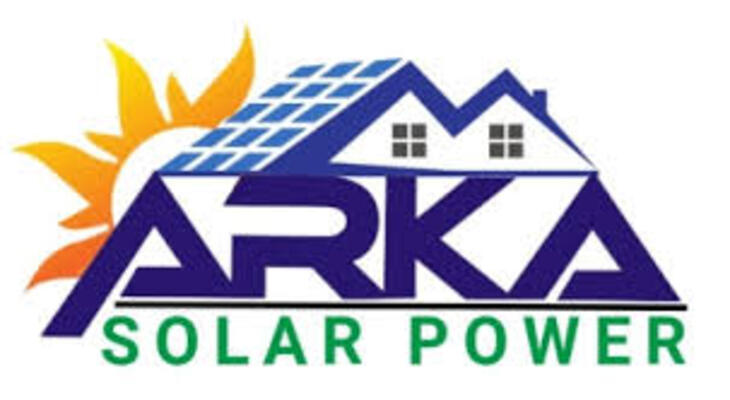Looking for the best solar panels for your home? Our complete guide to going solar will help you make the right choice! Solar power is becoming an increasingly popular solution for homeowners who want to save on electricity bills, increase their property value, and make a positive environmental impact. This comprehensive guide covers everything you need to know—from choosing the right solar panels based on efficiency and durability to understanding the installation process, government subsidies, and maintenance tips. Whether you’re a first-time solar buyer or looking to upgrade your existing system, this guide simplifies your solar journey and helps you make informed decisions.
One of the primary reasons homeowners switch to solar energy is to reduce their electricity bills. By generating your own electricity from sunlight, you can rely less on the traditional power grid and cut monthly energy costs significantly. In many cases, solar panels can even produce excess electricity that can be fed back into the grid, allowing you to earn credits or payments through net metering programs. This not only reduces your electricity bills but can also turn your home into a mini power plant that contributes clean energy to the community.
Besides financial savings, installing solar panels adds considerable value to your home. Studies show that solar-equipped homes sell faster and at higher prices compared to similar homes without solar power. Buyers are increasingly interested in energy-efficient properties that offer long-term savings and reduce environmental impact. Therefore, investing in high-quality solar panels is not just a cost-saving move but also a smart investment in your home’s future.
When selecting the best solar panels for your home, it’s essential to consider several important factors. Solar panel efficiency measures how well a panel converts sunlight into usable electricity. Panels with higher efficiency ratings generate more power in a limited space, which is particularly important if you have a smaller roof or shaded areas. Durability is another key factor, as solar panels must withstand various weather conditions like heavy rain, strong winds, and intense heat for many years. Look for panels made with high-quality materials and backed by robust warranties—typically 20 to 25 years—to ensure long-term reliability.
The types of solar panels available on the market also vary. Monocrystalline panels are known for their superior efficiency and sleek black appearance, making them popular among homeowners. Polycrystalline panels are generally more affordable and have a distinctive blue hue, but their efficiency is slightly lower. Thin-film panels are lightweight and flexible, often used in unconventional applications but less efficient than the other two types. Your choice will depend on your budget, roof space, aesthetic preferences, and energy needs.
Understanding the installation process helps you prepare for a hassle-free solar setup. A professional solar installer will start by evaluating your home’s energy consumption and roof condition. They will design a system tailored to your specific energy needs and structural factors, ensuring optimal placement and maximum sunlight exposure. Installation usually involves mounting solar panels on your roof, connecting them to an inverter that converts the DC power generated by the panels into usable AC power, and integrating the system with your home’s electrical panel. Most installations take a few days, and professionals handle all safety and quality standards.
Maintenance of solar panels is generally minimal, but some regular care helps maintain efficiency. Cleaning the panels to remove dust, dirt, and bird droppings ensures maximum sunlight absorption. Many homeowners schedule an annual inspection with their solar provider to check for any potential issues like wiring damage or inverter malfunctions. These simple steps help extend the lifespan of your solar system and keep it running efficiently.
Government subsidies and incentives make solar power more affordable for homeowners. Many states and local governments offer tax credits, rebates, or low-interest loans to encourage solar adoption. Additionally, net metering policies allow you to sell excess electricity back to the grid, further reducing your energy costs. It’s important to research the incentives available in your area or consult with your solar installer to take full advantage of these programs and lower your upfront investment.
Finding a trusted and experienced solar installer is critical to your project’s success. Look for companies with a proven track record, positive customer reviews, proper licensing, and transparent pricing. A reputable installer will guide you through the entire process—from initial consultation and customized system design to installation, paperwork, and ongoing support. They will also help you with permits, inspections, and net metering applications to make your solar journey smooth and stress-free.
Calculating your home’s energy needs is an essential step before purchasing solar panels. Review your past electricity bills to determine your average monthly consumption in kilowatt-hours (kWh). This information enables your installer to recommend the right system size that covers your energy requirements without overbuilding. Oversizing your system can increase costs unnecessarily, while undersizing may result in insufficient power generation.
Going solar is more accessible and rewarding than ever before. With advances in technology and a growing commitment to sustainability, homeowners are embracing solar energy as a practical and eco-friendly solution. Solar power offers independence from fluctuating energy prices and helps protect the environment by reducing greenhouse gas emissions. It’s a win-win choice that benefits your wallet and the planet.
In conclusion, installing the best solar panels for your home is a smart investment that pays off in savings, increased property value, and environmental stewardship. By understanding key factors such as panel efficiency, durability, installation, maintenance, and government incentives, you can confidently choose a solar solution tailored to your needs. Partnering with a trusted solar provider ensures quality service and ongoing support, making your transition to clean energy smooth and successful.
Empower your home with renewable energy and enjoy the peace of mind that comes with sustainable living. Start your solar journey today and take the first step toward a brighter, cleaner, and more affordable energy future. Solar power isn’t just a trend—it’s a long-term solution that benefits you and generations to come
